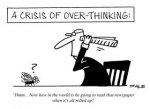There are many different definitions of fact
As a professional logician, I use one very precise meaning of the word fact: a statement of a state of affairs that is true for all time.
That’s possible only in logic. Human discourse is always, inevitably fuzzy. For example, by my definition, "the sun is shining" needs to be qualified by an understanding that the statement applies only to this particular instant in time; the same statement will not be true in a few hours.
In other words, it depends on the definition of what "is" is. To be a fact, I will interpret the statement as implicitly qualified to a single instant, and under that interpretation the statement is a fact. It is a pragmatic of human discourse that we all assume each other to be speaking facts and not to bring up known falsehoods.
It gets messier when you start using modal logics like probability. The statement "It is possible that it rained last night" can be a fact only relative to the state of ignorance about last night’s weather, which is implicit in the statement. Future logics ("It will rain tomorrow") are epistemologically even messier; the statement’s truth is literally impossible to evaluate until the events have passed.
So when I use the word "fact", at least professionally, I mean something which does not change and I do not describe something as a fact unless I am certain it will not change.
Sadly, I am not perfect, and I have very few actual facts at my disposal. We see through a glass, darkly, and nearly all facts come with a host of implicit qualifications, limitations, and caveats which are unstated for sake of brevity. Often, you can safely ignore them because they turn out to be irrelevant.
When framing a logical argument, it’s helpful for both parties to stipulate any facts being used, at least by clarifying the qualifications and potentially revisiting them when they become important. As I said before, it's one of the pragmatic aspects of human discourse to assume that we are all speaking only in facts, at least with the implicit qualifications, even if it is sometimes necessary to make them explicit.
In the extremest case, quantum mechanics may mean that there are no true facts at all in the universe, only a set of self-consistent but mutually-inconsistent explanations. But on the macroscopic scale those inconsistent explanations always collapse down to a single one, for reasons that are not yet well understood. That is, the cat is always alive or dead in the box (to borrow Schroedinger’s famous experiment), and the half-state has never been and never will be observed.
So QM aside, I’ll stick with the macroscopic definitions of facts. When I argue with somebody using a different definition, I’ll try to encourage them to use my definition by qualifying any changeable facts that they use with clauses like "As best we know" or "It is my opinion that". It dramatically simplifies the logic, which is hard enough for human beings to apply as it is, even while increasing the complexity of the space in which we’re arguing.

